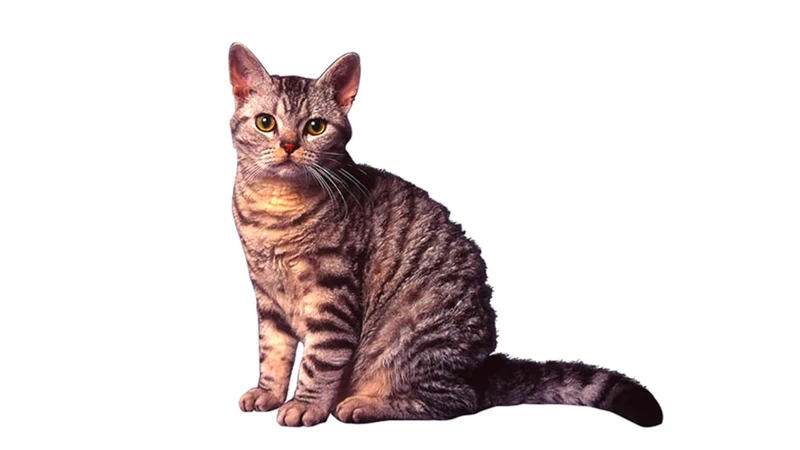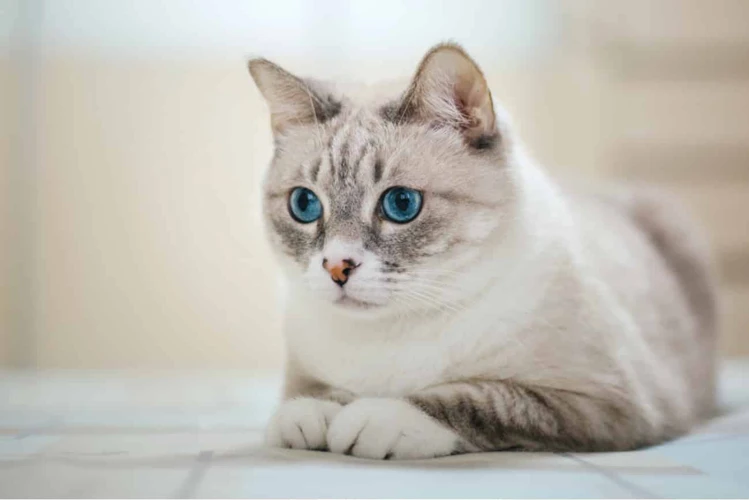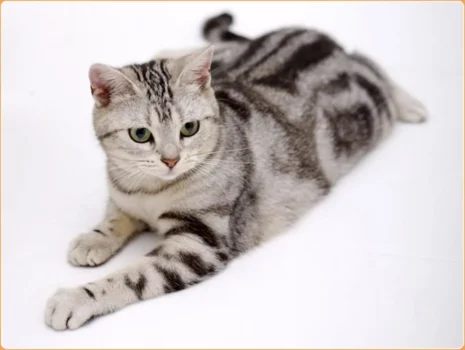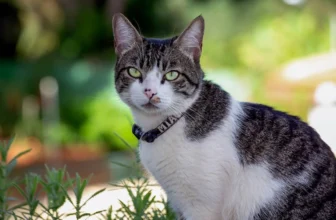As a cat owner, you always want to ensure that your pet is healthy and happy. One way to achieve this is by getting your American Wirehair cat tested regularly. However, with so many different types of health tests available, it’s easy to feel overwhelmed and unsure where to start. That’s why we have put together this comprehensive guide to understanding the different types of health tests for American Wirehair cats. From genetic testing to screening for common illnesses, we will cover everything you need to know to keep your feline friend in tip-top shape. So, let’s dive in and explore the world of cat health testing together!
Genetic Testing

As an American Wirehair cat owner, you may wonder about the genetic makeup of your pet. Understanding your cat’s genes can help detect inherited diseases or traits that they may carry. Genetic testing involves analyzing DNA samples, screening for disease-causing mutations, or identifying the cat’s predisposition to certain conditions. To ensure that your American Wirehair cat’s genetic health is optimal, let’s dive into the world of genetic testing. But first, it is essential to understand the significance of genetic testing, how it applies to breeding, and what you need to look for in the results. Check out the health testing recommendations for American Wirehair breeding that will give you more insights into ensuring that your cat’s genetic health is at its best.
DNA Testing
One of the most popular types of health testing for American Wirehair cats is DNA testing. This type of testing analyzes a cat’s genetic code to determine if they are carrying any particular genetic mutations that could be problematic.
These tests can be useful for breeders who want to ensure that their breeding stock is free of genetic diseases. For example, a breeder may want to test their American Wirehair cats for hypertrophic cardiomyopathy (HCM), a heart disease that is common in some cat breeds.
There are different types of DNA tests available for American Wirehair cats, including parentage testing and genetic mutation testing. Parentage testing can be useful for breeders who want to confirm the parentage of a litter of kittens. Genetic mutation testing looks for specific genetic mutations that can lead to health issues.
One commonly tested for genetic mutation is the PKD1 gene, which can lead to polycystic kidney disease in cats. American Wirehair cats can also be tested for the HCM1 gene, which causes hypertrophic cardiomyopathy.
If you’re interested in DNA testing for your American Wirehair cat, it’s important to find a reputable laboratory that specializes in feline genetic testing. They can analyze your cat’s DNA sample and provide you with accurate and reliable results.
For more information about health testing for American Wirehair cats, check out our article on genetics and American Wirehair health testing. You can also find answers to some common health-related questions in our article on American Wirehair kitten health questions. And if you’re curious about the results of health tests on American Wirehair cats, take a look at our article on American Wirehair cat health results.
Genetic Disease Screening
Genetic disease screening is an important health test for American Wirehair cats, as many hereditary conditions can be prevalent in this breed. It is crucial to identify any genetic conditions that your American Wirehair may be carrying since it can prevent serious health concerns down the line. Here are some of the common genetic disease screening tests to keep in mind:
1. Polycystic Kidney Disease (PKD): PKD is a genetic condition that causes cysts to form on the kidneys, eventually leading to kidney failure. This disease is common in American Wirehair cats, so it is important to screen for PKD. Testing for PKD involves a simple ultrasound exam that can detect the size and number of cysts in the kidneys.
2. Hypertrophic Cardiomyopathy (HCM): HCM is a type of heart disease that can be passed down genetically. This disease is common in many breeds, including American Wirehairs. HCM can cause thickening of the heart muscles, which leads to heart failure. Screening for HCM involves a veterinary cardiologist performing an echocardiogram to evaluate the thickness of the heart muscles.
3. Progressive Retinal Atrophy (PRA): PRA is a genetic condition that causes the retina to degenerate, leading to blindness. This disease is more common in certain breeds, including American Wirehairs. While there is no cure, early detection can prevent rapid progression of the disease. PRA screening typically involves an eye exam performed by a veterinary ophthalmologist.
4. Feline Leukemia Virus (FeLV): FeLV is a viral disease that can be passed from cat to cat. This disease affects the immune system and can lead to various health concerns. Testing for FeLV is crucial, especially if your American Wirehair interacts with other cats. The test involves drawing a small amount of blood from the cat and checking for the presence of the virus.
5. Feline Immunodeficiency Virus (FIV): FIV is another viral disease that affects the immune system. This disease is commonly seen in outdoor cats or cats that have contact with other infected felines. Testing for FIV involves a blood test that checks for antibodies against the virus.
It is essential to understand that these are just some of the genetic diseases that could impact the health of American Wirehairs. If you are considering bringing an American Wirehair cat home, it is best to speak with a veterinarian to understand the recommended screening tests that you should consider based on the cat’s specific lineage.
Screening for Common Illnesses

As responsible pet owners, it is crucial to keep a close eye on our feline friends’ health and well-being. Regular health screenings for common illnesses can help detect potential issues early on and prevent them from progressing into more serious health problems. By performing simple yet effective tests like blood tests, urinalysis, and fecal tests, cat owners can gain valuable insight into their American Wirehair cat’s health status. Let’s delve deeper into these common health screening methods and understand how they can help keep our furry companions healthy and happy.
Blood Tests
Blood tests are one of the most commonly used health tests for American Wirehair cats. These tests are usually done to check the overall health of the cat and diagnose any underlying conditions. The following are some of the most common blood tests conducted on American Wirehair cats:
- Complete Blood Count (CBC): This test checks for abnormalities in the cat’s blood cells, including white blood cells, red blood cells, and platelets. A CBC can help diagnose infections, anemia, and other blood disorders.
- Blood Chemistry Panel: This test measures various chemicals and enzymes in the cat’s blood, including electrolytes, glucose, and liver and kidney function. An abnormal blood chemistry panel can indicate issues such as liver or kidney disease, diabetes, dehydration, or malnutrition.
- Thyroid Hormone Test: This test checks for thyroid hormone levels in the cat’s blood. Abnormal levels can indicate hyperthyroidism or hypothyroidism.
It is essential to keep in mind that blood tests require the cat to be restrained to obtain the blood sample, which can induce stress and anxiety in some cats. Consult with your veterinarian on how to keep your cat calm and comfortable during the procedure. Additionally, blood tests can be an expensive procedure, and preparation is necessary to avoid stressing the cat with repeat procedures. Regular blood tests can significantly contribute to sustain your American Wirehair cat’s health.
Urinalysis
Urinalysis is a common health test recommended for all American Wirehair cats. It is performed to evaluate the kidney and urinary tract health of cats. A urinalysis can help detect underlying health conditions such as urinary tract infections, kidney diseases, and diabetes, among others. A veterinarian will collect a urine sample and analyze it for abnormalities. The following are some common aspects of a urinalysis:
Color and Appearance: The color of the urine and its appearance can vary in different cats. However, if the urine is cloudy, bloody, or has a strong odor, it may indicate an underlying health condition.
Specific Gravity: Specific gravity is used to measure the concentration of urine. Low specific gravity indicates the diluted urine, while high specific gravity means the urine is more concentrated.
pH Level: The pH level of urine ranges from acidic to alkaline. Normal feline urine has a pH level between 6.0 and 7.0. If the pH level is outside this range, it may indicate a health issue.
Protein and Glucose: In a urinalysis, the presence of protein and glucose can indicate underlying health conditions such as kidney diseases, urinary tract infections, and diabetes. Generally, urine should not contain protein or glucose.
Presence of Microorganisms: Urinalysis can also detect the presence of microorganisms such as bacteria, fungi, and parasites which can cause urinary tract infections and other health issues.
It is essential to note that not all cats are cooperative when it comes to providing urine samples. In such cases, veterinarians may need to collect urine samples via a catheter or cystocentesis (a procedure where a needle is used to draw urine from the bladder). Urinalysis is a common and important health test that helps detect underlying health issues in American Wirehair cats.
Fecal Tests
Fecal tests are crucial in checking the overall health of American Wirehair cats and diagnosing any potential digestive issues. These tests help to identify parasites, bacteria, and other organisms that could be causing gastrointestinal problems.
There are different types of fecal tests available for American Wirehair cats. Some of these include:
- Fecal flotation tests: This test involves mixing a small amount of the cat’s feces with a special solution and then placing it in a tube. The tube is then centrifuged, and the parasites float to the top, making them easier to identify.
- Fecal smear tests: In this test, a sample of the cat’s feces is placed on a microscope slide and examined under a microscope. This test is useful in identifying bacteria and certain types of parasites.
- Fecal culture tests: This test involves taking a small sample of the cat’s feces and growing any bacteria present in a laboratory setting. This test is helpful in identifying bacterial infections.
It’s important to note that some parasites, such as tapeworms, may not show up in routine fecal tests. In these cases, a veterinarian may need to perform additional tests or check for physical symptoms to diagnose the issue.
Regular fecal tests are essential in maintaining the health and wellness of American Wirehair cats. If you notice any changes in your cat’s digestion or bowel habits, it’s important to have them evaluated by a veterinarian and consider fecal testing as part of their overall care.
Other Health Tests
As a pet parent, you want to ensure that your American Wirehair cat receives the best possible care. This includes regular health check-ups and tests to identify any potential health concerns before they become major issues. In addition to genetic testing and screening for common illnesses, there are several other health tests that can help you evaluate the overall well-being of your feline friend. Let’s dive into some of these lesser-known health tests that your American Wirehair cat may benefit from.
Radiographs and Ultrasounds
If you want to have a complete understanding of the health of your American Wirehair cat, you must consider radiographs and ultrasounds, as they can detect potentially fatal internal issues that cannot be seen with the naked eye.
Radiographs are also known as X-rays, and they are helpful in diagnosing bone fractures and detecting the presence of foreign objects in the digestive tract of your American Wirehair cat. This test is non-invasive and painless for your cat; it relies on the use of radiation to capture images of the body’s internal structures. The images captured are then examined by a trained veterinary professional to detect any abnormalities.
Ultrasounds use sound waves to produce images of the inside of your American Wirehair cat’s body, and it is a great option for detecting problems with internal organs such as the liver, kidneys, and bladder. When combined with radiographs, ultrasounds provide a better understanding of the health of your cat’s internal systems. These tests can also be used to detect pregnancy in cats.
These tests are typically performed when your veterinarian notices any abnormalities during your American Wirehair cat’s physical exams or when they suspect the presence of an internal issue. The results of these tests will help your veterinarian determine the best course of action for treatment.
Radiographs and ultrasounds are important tools in your veterinarian’s arsenal for diagnosing potential health issues in your American Wirehair cat. By undergoing these tests on a regular basis, you can ensure that your cat remains healthy and receives prompt treatment, if needed.
Cardiac Screening
Screening for cardiac health is an essential component of maintaining the overall well-being of your American Wirehair cat. A heart condition can be potentially fatal, and early detection and treatment are the keys to managing this problem. During a cardiac screening, a veterinarian will examine your cat’s heart’s structure, function, and electrical activity to identify any abnormalities or underlying conditions.
One of the tests that may be conducted during cardiac screening is an electrocardiogram (ECG). An ECG measures the electrical activity of the heart and provides information about the heart’s rhythm and rate. It is a simple and non-invasive procedure that involves attaching small electrodes to your cat’s skin. The results of an ECG can help identify problems with your cat’s electrical system or diagnose heart disease.
Another test that may be performed during a cardiac screening is an echocardiogram. This test uses ultrasound technology to create images of your cat’s heart, allowing your veterinarian to evaluate its structure and function. An echocardiogram can identify structural defects, abnormalities in blood flow, and other cardiac conditions. This test is usually performed under sedation to help keep your cat still and relaxed.
In addition to electrocardiograms and echocardiograms, blood pressure measurement should be conducted as part of any cardiac screening. High blood pressure (hypertension) is a common problem in cats and can lead to heart disease, kidney disease, and other potentially serious medical conditions. Your cat’s blood pressure can be measured using a special cuff placed around the base of the tail while your cat is relaxed.
Cardiac screening is essential for the early detection of heart problems in your American Wirehair cat. Early diagnosis and treatment can help to manage heart disease and prevent it from progressing to a more severe condition. If your cat has a heart murmur, difficulty breathing, or any other signs of cardiac problems, you should consult with your veterinarian right away.
Eye Exams
Keeping your American Wirehair cat’s eyes healthy is essential for their overall well-being. Eye exams are essential in diagnosing and treating eye problems before they become severe. Regular eye exams are recommended as a preventative measure. Here are some of the tests and examinations that are used to determine the health of your cat’s eyes.
- Visual Exam: This exam involves observing the eyes’ surface, including the lids, conjunctiva, and corneas, for signs of irritation, inflammation or discharge. The pupils’ response to light is also checked, and the vet may shine a light into the eyes to look at the back of the eyes.
- Tear Production: The vet may also perform a Schirmer tear test to measure the amount of tear production. Tear production is essential for maintaining your cat’s eye health as tears help to lubricate and protect the eyes.
- Eye Pressure: Ocular pressure is a measure of internal eye health. An intraocular pressure test may also be performed to check for glaucoma.
- Dye Tests: Dye tests may be performed to detect corneal ulcers or abrasions. Fluorescein dye is added to the eyes, after which the eyes are examined for staining.
It is crucial to take your American Wirehair cat for an eye exam if they show any signs of eye irritation or discomfort like squinting, redness, discharge or cloudiness. Injuries to the eye should also be checked out by a veterinarian as soon as possible. Regular eye exams can detect any eye-related health issues early and reduce discomfort or pain to your furry friend.
Dental Evaluation
Dental health is an important aspect of overall health for cats, including American Wirehair cats. Regular dental evaluations can help identify potential health problems and prevent them from getting worse. During a dental evaluation, a veterinarian will examine your American Wirehair cat’s teeth and gums, and may perform a cleaning.
Dental Evaluation Procedure:
| Step | Procedure |
|——|———–|
| 1. | The veterinarian will first examine your American Wirehair cat visually to check for any visible signs of dental problems.|
| 2. |The veterinarian will then manually examine your cat’s mouth, checking for any broken teeth, tartar buildup, or gum inflammation.|
| 3. | If necessary, the veterinarian will perform a dental cleaning. This involves removing any tartar buildup on the teeth and below the gumline.|
| 4. | The veterinarian may also take x-rays of your cat’s teeth to check for any underlying dental problems that may not be visible during the visual exam.|
| 5. |Depending on the results of the evaluation, the veterinarian may recommend follow-up appointments or treatment to address any dental issues.|
It’s important to keep your American Wirehair cat’s teeth and gums healthy between dental evaluations. You can do this by feeding your cat a diet that promotes dental health, such as dry food that helps prevent tartar buildup. You can also provide your cat with toys and treats that help clean their teeth.
In some cases, American Wirehair cats may require more frequent dental evaluations, especially if they have a history of dental problems or if they are predisposed to certain dental issues. It’s important to work closely with your veterinarian to schedule regular dental check-ups and determine the best steps for maintaining your cat’s dental health.
By prioritizing dental evaluations and keeping your American Wirehair cat’s teeth and gums healthy, you can help prevent potential health problems and ensure that your cat stays healthy and happy for years to come.
Conclusion
After learning about the different types of health tests available for American Wirehair cats, it’s crucial to understand that regular check-ups and preventative care are crucial for maintaining your cat’s health in the long run. Genetic testing can help determine potential hereditary health issues, while screenings for common illnesses can identify any early signs of health problems. Radiographs, ultrasounds, cardiac screenings, eye exams, and dental evaluations are all essential additional tests that can help keep your American Wirehair cat healthy and happy.
It’s important to remember that cats are experts at hiding their pain and discomfort, which is why regular visits to the vet are crucial. As a responsible cat owner, it’s your job to stay informed and aware of the potential health issues that may arise for your American Wirehair cat.
By staying on top of health tests and preventative care, you can ensure that your American Wirehair cat remains healthy and happy for many years to come. It’s never too early to start good health habits, so schedule that vet appointment today and provide your beloved feline companion with the best possible care. Your cat will thank you for it!
Frequently Asked Questions
What is genetic testing for American Wirehair cats?
Genetic testing for American Wirehair cats is a type of screening used to detect genetic diseases in the breed.
What are the benefits of DNA testing for American Wirehair cats?
DNA testing can help identify carriers of genetic diseases and prevent the spread of these diseases in the breed.
What is genetic disease screening for American Wirehair cats?
Genetic disease screening is a type of testing used to detect genetic diseases in the breed and to identify carriers of these diseases.
What common illnesses should American Wirehair cats be screened for?
American Wirehair cats should be screened for common illnesses such as kidney disease, diabetes, and hyperthyroidism.
What is a blood test for American Wirehair cats?
A blood test is a type of screening used to detect a variety of health problems in American Wirehair cats, such as anemia, infections, and liver or kidney disease.
What is a urinalysis for American Wirehair cats?
A urinalysis is a type of health test that examines a cat’s urine for the presence of bacteria, blood cells, and other substances that can indicate a health problem.
What is a fecal test for American Wirehair cats?
A fecal test is a type of screening used to detect the presence of parasites or other harmful substances in a cat’s stool.
What are radiographs and ultrasounds used for in American Wirehair cats?
Radiographs and ultrasounds are used to detect health problems such as tumors, urinary tract blockages, and respiratory problems in American Wirehair cats.
What is cardiac screening for American Wirehair cats?
Cardiac screening is a type of health test that examines the heart of American Wirehair cats for signs of disease or abnormalities in heart function.
Why is dental evaluation important for American Wirehair cats?
Dental evaluation is important for American Wirehair cats to ensure that they have healthy teeth and gums and to prevent dental disease that can lead to other health problems.







